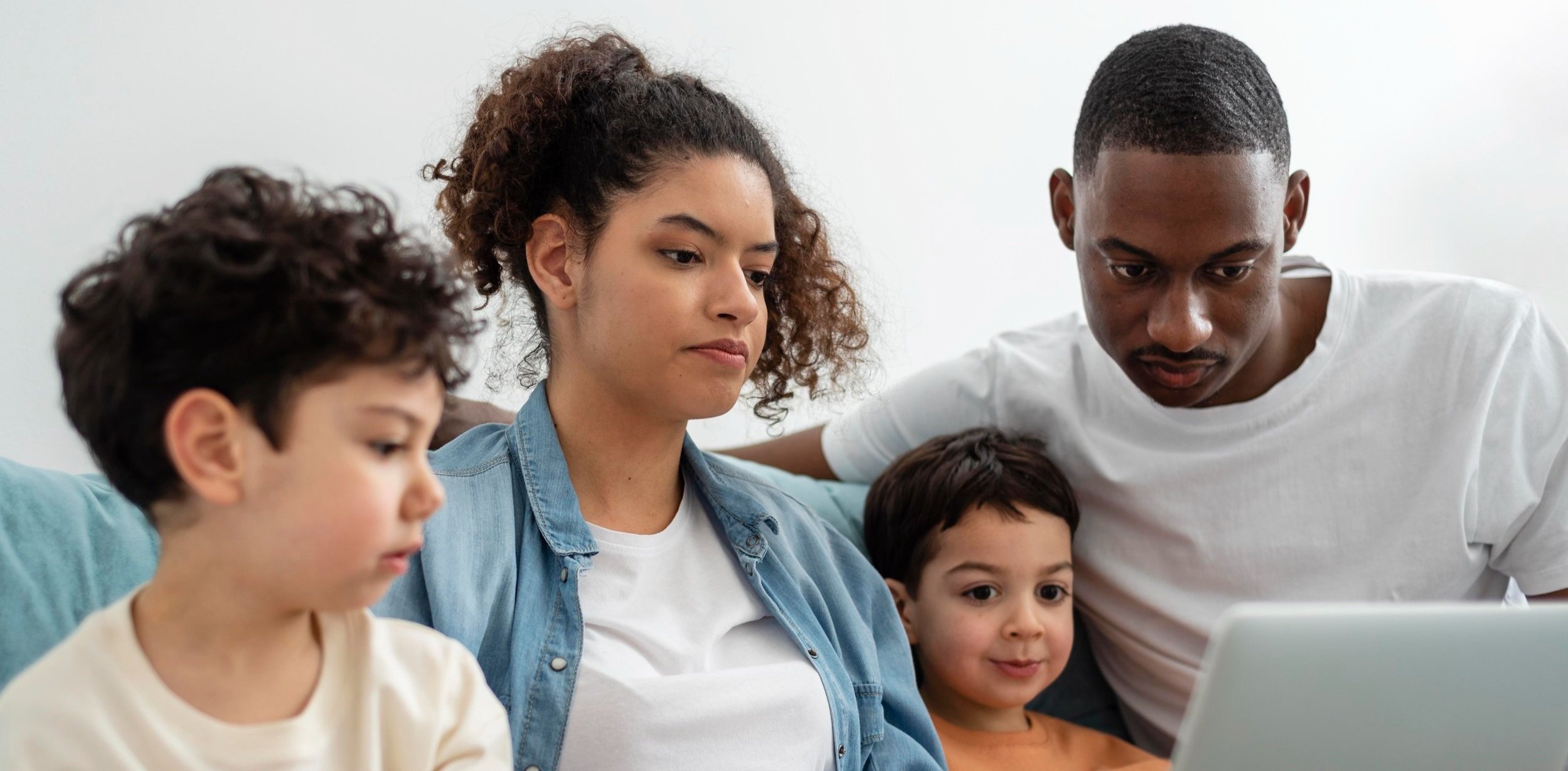
Parent & Caregiver Information
Approximately 1 in 10 youth report experiencing sexual violence before their 18th birthday. Recognizing the importance of teaching children about safety, the state of Indiana passed a law requiring all public, charter, and accredited private schools to provide child abuse prevention education to students in kindergarten through 12th grades.
The Indiana Center for Prevention has been providing age-appropriate safety education for youth for over 20 years. However, a one-time lesson each year is not enough to protect children. Parents and caregivers play a vital role in shaping a child's understanding of safety, laying the foundation for a lifetime of responsible decision-making. In a world full of ever-changing hazards and uncertainties, you serve as the first and most influential teachers, imparting essential knowledge and skills that empower children to navigate their surroundings with confidence.
To support parents in continuing those vital conversations about safety at home, the Indiana Center for Prevention provides an overview of the personal safety lessons we will be providing in your child’s school. Parents and caregivers are also encouraged to sign-up for a one of our many FREE adult trainings found under Training on our website. Virtual sessions are offered regularly so you can participate from home. Basic information about programming is shared below; additional information can be found in the Parent Videos linked below.
The Indiana Center for Prevention partners with Child Lures Prevention to cover cornerstone topics of child safety. Due to the licensing agreement, we are unable to provide copies of the actual curriculum. Below is an overview of topics covered and contains key words and phrases contained in the slides and facilitator scripts. Videos and real-life cases in the news are used to reinforce key safety concepts.
ICPYAS follows best practices when selecting videos and sharing case examples. We do not use worst-case examples or share explicit details of abuse. Sharing explicit details of abuse and worse-case examples can traumatize younger children which is counterproductive to educating and empowering them. Throughout lessons with younger children, we emphasize that this information is “just in case” and that most people are safe. When hearing worst-case examples, teens tend to dismiss the possibility of this happening within their community. When using examples - or real cases for teens - we highlight the resilience of the youth involved to empower youth to recognize, resist, and report inappropriate and abusive situations.
Anatomically correct dolls are used to teach children names for private body parts (breasts/chest, bottom, penis, vagina) in kindergarten through 2nd grades. Abusers exploit a child’s perception that these body parts are not to be talked about to keep them silent. By teaching children proper names for private body parts, we are teaching them that it is OK to talk to their trusted adults about private parts. It also equips children with the language they need to tell if someone is sexually abusing them. Sometimes, children attempt to disclose but do not have the language they need to make adults understand what has happened. This portion of the lesson lasts approximately 2 minutes and children are NOT asked to say the body part names. Starting in 3rd grade, we use the phrase “private parts” rather than naming these parts.
In kindergarten through 6th grades, youth are taught Body Safety Rules. The Body Safety Rules are: 1) No one should look at; 2) touch, or 3) take pictures or videos of a child’s private body parts for “no good reason” such as to help them stay clean and healthy or ask a force a child to break someone else’s body safety rules. Children are taught their body belongs to them and they have a right to say NO to touches that break Body Safety Rules or make them uncomfortable, and all youth are encouraged to talk to the Trusted Adults in their lives.
Videos are used in all grades to reinforce concepts. Links to the videos used in the 2024-2025 school year are listed below.
Kindergarten: National Center for Missing and Exploited Children Check First
1st Grade: National Center for Missing and Exploited Children Tell a Trusted Adult
2nd Grade: National Center for Missing and Exploited Children Tell People ‘No’
3rd Grade: Fight Child Abuse Safe/Unsafe Touches
4th Grade: National Center for Missing and Exploited Children Tell a Trusted Adult
5th Grade: Fight Child Abuse Secrets
6th Grade: National Center for Missing and Exploited Children Friend or Fake
7th & 8th Grades:
National Center for Missing and Exploited Children It’s Called Sextortion
Healthy Relationships Initiative Healthy Boundaries in Relationships
9th - 12th Grades:
National Center for Missing and Exploited Children Sextortion - The Story of H.M.
The Prevention Connection Setting Healthy Boundaries
Child Lures Prevention - Think First and Stay Safe
Program information for parents and caregivers of children in grades K-6.
Teen Lures Prevention
Program information for parents and caregivers of youth in grades 7-12.
ADDITIONAL RESOURCES
Donations from supporters like you helps offset the costs of these programs and provide funding for local schools and youth-serving organizations.


